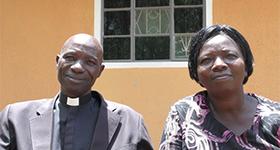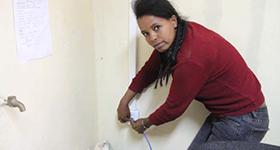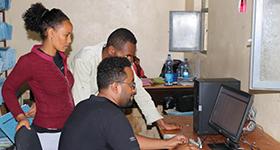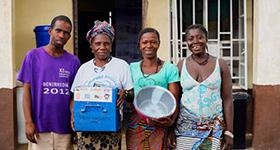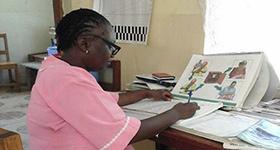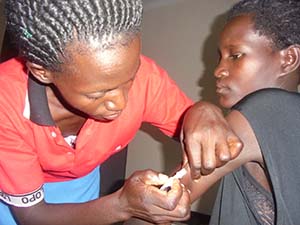
A trained VHT provides injectable contraceptives to a client.
Background
Uganda’s National Development Plan 2010/11–2014/15 reports that in the Iganga District, 24 percent of pregnant women are adolescents aged 15 to 19 years old. As part of its APC/USAID-funded Advancing Community-based Access to Injectable Contraceptives in Uganda project, WellShare International conducted a district assessment on readiness for community-based access to injectables and results showed that only 3 out of the 55 Health Centers in Iganga offer youth-friendly services and that less than 10 percent of Health Center staff are trained in YFS. This means that youth access to family planning services is minimal.
Intervention
“Now I know we have more teenage pregnancies than what is recorded. These youths have not been coming for services because we have been judging them. I must train the VHTs who are near to them to make sure they reach them with services.”
— Kobusinge.
This trend is getting reversed by the training of Village Health Teams (VHTs) in community-based family planning. Lillian Kobusinge, a midwife at Makuutu Health Centre III, sighed with relief when she trained selected VHTs to offer family planning to the community. Kobusinge, like many Health Center service providers, believed she was giving adequate youth-friendly services until she was encouraged by Ministry of Health trainers during a Sayana Press training of District and Health Center workers to think more about adolescent reproductive health rights in relation to her own practice.
Kobusinge kept her word, because when it came to training the 14 VHTs serving under Makuutu Health Center III, the only Health Center in Makuutu Subcounty, she emphasized the need to reach the adolescents and gave VHTs communicating with young people skills to do so.
Outcomes
Kobusinge’s efforts paid off when, within just two days of the VHT practicum, adolescents started coming for family planning services from the VHTs. They did not mind being injected even in the presence of the project staff.
Lessons Learned
An emphasis on adolescent-friendly service provision by health workers in the training of VHTs can produce timely uptake of services by adolescents. Trained VHTs can ease the work of Health Center service providers allowing time for these highly-trained staff to attend to issues other than family planning.

